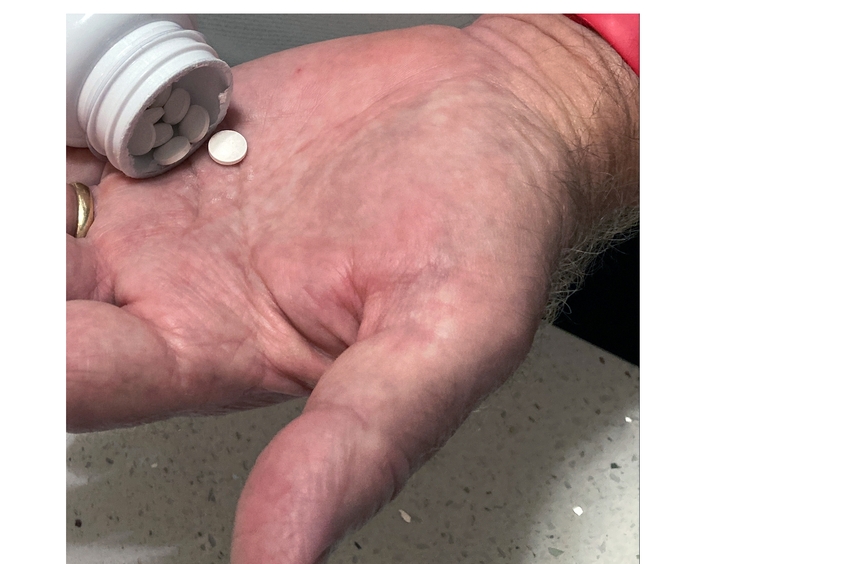
DALLAS, Nov. 3, 2025 — A recent study has raised significant concerns about the long-term use of melatonin supplements, a common remedy for insomnia. The research, which analyzed health records over five years for more than 130,000 adults, found that those who used melatonin for at least a year were more likely to be diagnosed with heart failure, require hospitalization for the condition, or die from any cause.
The findings, set to be presented at the American Heart Association’s Scientific Sessions 2025 in New Orleans, highlight potential safety issues regarding the cardiovascular effects of melatonin, a hormone widely available over the counter in many countries, including the U.S.
Understanding Melatonin and Its Use
Melatonin is a hormone naturally produced by the pineal gland, playing a crucial role in regulating the body’s sleep-wake cycle. Its levels rise in darkness and fall in daylight. Synthetic versions of melatonin are often used to treat insomnia and jet lag, available over the counter in the U.S., where supplements are not strictly regulated.
In the study, researchers categorized individuals who had documented melatonin use for over a year as the “melatonin group.” In contrast, those without any melatonin records in their medical history were classified as the “non-melatonin group.”
Key Findings and Implications
The main analysis revealed that adults with insomnia who used melatonin long-term had about a 90% higher chance of developing heart failure over five years compared to non-users. Furthermore, those with at least two melatonin prescriptions filled 90 days apart showed an 82% higher risk.
“Melatonin supplements may not be as harmless as commonly assumed. If our study is confirmed, this could affect how doctors counsel patients about sleep aids,” said Ekenedilichukwu Nnadi, M.D., the study’s lead author and chief resident in internal medicine at SUNY Downstate/Kings County Primary Care in Brooklyn, New York.
Secondary analyses showed that participants taking melatonin were nearly 3.5 times more likely to be hospitalized for heart failure and almost twice as likely to die from any cause compared to those not taking the supplement.
Expert Opinions and Concerns
Marie-Pierre St-Onge, Ph.D., chair of the American Heart Association’s 2025 scientific statement on multidimensional sleep health, expressed surprise at the findings. “I’m surprised that physicians would prescribe melatonin for insomnia and have patients use it for more than 365 days, since melatonin, at least in the U.S., is not indicated for the treatment of insomnia,” she noted.
St-Onge, who was not involved in the study, emphasized the need for awareness about the chronic use of melatonin without proper indication. She highlighted the lack of long-term cardiovascular safety data for melatonin, which prompted the research into its effects on heart failure risk.
Study Limitations and Future Research
The study has several limitations. The database used includes countries with different regulations regarding melatonin prescriptions, and the locations of patients were not specified in the de-identified data. This could mean that over-the-counter users in the U.S. were misclassified as non-users, potentially skewing results.
Additionally, the study did not account for the severity of insomnia or the presence of other psychiatric disorders, which could influence both melatonin use and heart risk. The researchers also noted that while their findings raise safety concerns, they do not establish a direct cause-and-effect relationship.
“Worse insomnia, depression/anxiety or the use of other sleep-enhancing medicines might be linked to both melatonin use and heart risk,” Nnadi said. “More research is needed to test melatonin’s safety for the heart.”
By the Numbers
- The study included 130,828 adults with an average age of 55.7 years, 61.4% of whom were women.
- 65,414 participants had been prescribed melatonin at least once and reported taking it for at least a year.
- Participants were matched on 40 factors, including demographics and health conditions, to ensure comparable groups.
- Records were searched for heart failure diagnosis codes, with secondary findings including hospitalization and death rates.
The study’s findings are considered preliminary until published in a peer-reviewed journal. The American Heart Association emphasizes that the conclusions presented do not necessarily reflect its policy or position.
As the debate over melatonin’s safety continues, this study underscores the importance of further research to better understand its long-term effects on cardiovascular health.







